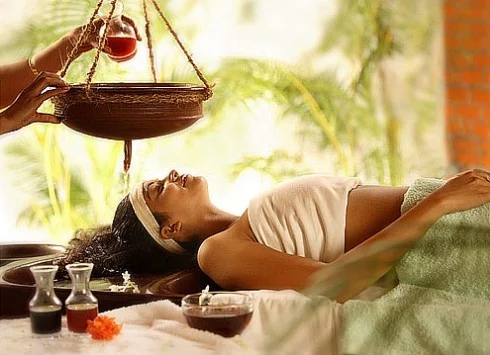Classical Ayurvedic therapy commences with a relaxing back
Abhyanga: The Nourishing Art of Ayurvedic Massage
Abhyanga is a classical Ayurvedic therapy that involves a full-body massage with warm, medicated oil. This ancient practice is deeply rooted in the principles of Ayurveda, a traditional Indian system of medicine that emphasizes holistic health and well-being. The massage begins with a relaxing back and shoulder massage, setting the stage for a deeply rejuvenating experience.
The Benefits of Abhyanga
Abhyanga offers numerous benefits for both physical and mental health. Some of the key benefits include:
- Relaxation and Stress Relief: The soothing strokes of Abhyanga can help reduce stress, anxiety, and tension in the body and mind.
- Improved Circulation: The massage stimulates blood flow, enhancing circulation and oxygen delivery to the tissues. This can help reduce muscle soreness, improve healing, and boost energy levels.
- Enhanced Sleep Quality: Abhyanga can promote relaxation and improve sleep quality by reducing stress and calming the mind.
- Improved Skin Health: The medicated oil used in Abhyanga nourishes the skin, improves its elasticity, and can help reduce the appearance of wrinkles and fine lines.
- Strengthened Immune System: Regular Abhyanga can help strengthen the immune system by improving circulation and reducing stress.
- Improved Digestion: Abhyanga can stimulate the digestive system, promoting better digestion and elimination.
- Balanced Doshas: In Ayurvedic medicine, the body’s balance of three doshas (Vata, Pitta, and Kapha) is crucial for overall health. Abhyanga can help balance the doshas, promoting harmony and well-being.
The Abhyanga Experience
A typical Abhyanga session begins with a relaxing back and shoulder massage. The therapist uses long, flowing strokes to warm up the muscles and promote relaxation. Warm, medicated oil is then applied to the entire body, and the massage continues with a combination of gentle pressure and deep tissue techniques.
The type of oil used in Abhyanga depends on the individual’s dosha and specific needs. For example, Vata individuals may benefit from sesame oil, Pitta individuals may benefit from sandalwood oil, and Kapha individuals may benefit from sunflower oil.
After the massage, the client may be asked to rest for a short period to allow the oil to penetrate the skin. A warm shower can be taken to remove any excess oil.
Incorporating Abhyanga into Your Self-Care Routine
Abhyanga can be a valuable addition to your self-care routine. It is recommended to have regular Abhyanga sessions, ideally once or twice a week. However, even occasional treatments can provide significant benefits.
If you’re unable to visit a professional Ayurvedic therapist, you can learn basic Abhyanga techniques and perform self-massage at home. However, it’s important to consult with a qualified Ayurvedic practitioner to ensure you’re using the correct oil and techniques for your specific needs.
By incorporating Abhyanga into your life, you can experience the many benefits of this ancient Ayurvedic therapy and promote your overall health and well-being.


Leave a Comment